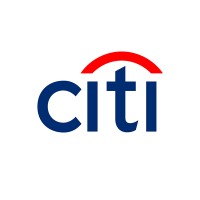Citigroup's Shift: A New Chapter in Banking and Firearms
June 4, 2025, 9:51 pm

Location: United States, North Carolina, Charlotte
Employees: 10001+
Founded date: 1998
Total raised: $2M
Citigroup has made a significant decision. The bank has lifted its seven-year-old restrictions on providing banking services to firearm manufacturers and sellers. This move marks a pivotal shift in the landscape of banking and gun sales, intertwining financial services with the ongoing national debate over gun control.
In March 2018, Citigroup implemented a policy in response to the tragic mass shooting at Marjory Stoneman Douglas High School in Parkland, Florida. The horrific event claimed 17 lives and left many injured. In the wake of this tragedy, Citigroup sought to promote responsible practices among its business clients. The policy required clients to adhere to certain guidelines: no sales to individuals without background checks, restrictions on sales to those under 21, and a ban on bump stocks and high-capacity magazines.
For seven years, this policy shaped the bank's relationship with its clients in the firearms industry. It applied to a diverse range of businesses, from small shops to large corporations. However, the landscape has changed. Citigroup's recent announcement indicates a departure from this stance. The bank now believes that the original policy did not adequately address the complexities of firearm manufacturing and sales.
The decision comes amid a broader political climate. The term "debanking" has gained traction, with accusations that banks are denying services based on political affiliations. This narrative has been fueled by influential figures in the tech industry and conservative politicians. They argue that certain groups, including cryptocurrency advocates and conservatives, face discrimination in accessing banking services.
Citigroup's executive leadership has responded to these pressures. The bank's new approach emphasizes inclusivity. It will update its employee Code of Conduct and Global Financial Access Policy to explicitly state that it does not discriminate based on political affiliation. This move aims to reassure clients and the public that Citigroup's banking services are open to all, regardless of their beliefs.
The banking industry has faced scrutiny over its practices. Executives have repeatedly asserted that they terminate services only when necessary, such as in cases of anti-money laundering violations or know-your-client regulations. They argue that political affiliations do not play a role in their decision-making processes. Citigroup's recent changes align with this narrative, reinforcing the message that the bank serves a diverse clientele.
The shift in policy also reflects the evolving regulatory landscape. Since the Trump administration took office, banks have navigated a complex web of regulations and accusations. Lawmakers have pushed for legislation to ensure fair access to banking services, leading to frustration within the industry. Citigroup's decision to lift its restrictions may be a response to these pressures, signaling a desire to adapt to the changing environment.
The implications of this decision are far-reaching. For firearm manufacturers and sellers, the lifting of restrictions opens new avenues for financial support. It may lead to increased investment in the industry, fostering growth and innovation. However, this move may also reignite debates over gun control and the responsibilities of financial institutions in promoting responsible practices.
Advocacy groups, particularly those focused on gun control, are likely to respond to this change. Organizations like March for Our Lives, formed by survivors of the Parkland shooting, have long advocated for stricter gun regulations. They may view Citigroup's decision as a setback in the fight against gun violence. The conversation surrounding gun control is complex, and this policy change adds another layer to an already heated debate.
As Citigroup navigates this new chapter, it faces the challenge of balancing business interests with social responsibility. The bank's leadership has expressed hope that communities and lawmakers will continue to seek solutions to prevent gun violence. However, the effectiveness of this approach remains to be seen.
In conclusion, Citigroup's decision to lift its restrictions on banking services for firearm manufacturers and sellers marks a significant shift in the financial landscape. It reflects broader political pressures and the evolving regulatory environment. As the bank embraces a more inclusive approach, the implications for the firearms industry and the ongoing debate over gun control will unfold in the coming months. Citigroup stands at a crossroads, where financial services meet societal responsibility. The path forward will require careful navigation, as the bank seeks to balance its business objectives with the expectations of its clients and the communities it serves.
In March 2018, Citigroup implemented a policy in response to the tragic mass shooting at Marjory Stoneman Douglas High School in Parkland, Florida. The horrific event claimed 17 lives and left many injured. In the wake of this tragedy, Citigroup sought to promote responsible practices among its business clients. The policy required clients to adhere to certain guidelines: no sales to individuals without background checks, restrictions on sales to those under 21, and a ban on bump stocks and high-capacity magazines.
For seven years, this policy shaped the bank's relationship with its clients in the firearms industry. It applied to a diverse range of businesses, from small shops to large corporations. However, the landscape has changed. Citigroup's recent announcement indicates a departure from this stance. The bank now believes that the original policy did not adequately address the complexities of firearm manufacturing and sales.
The decision comes amid a broader political climate. The term "debanking" has gained traction, with accusations that banks are denying services based on political affiliations. This narrative has been fueled by influential figures in the tech industry and conservative politicians. They argue that certain groups, including cryptocurrency advocates and conservatives, face discrimination in accessing banking services.
Citigroup's executive leadership has responded to these pressures. The bank's new approach emphasizes inclusivity. It will update its employee Code of Conduct and Global Financial Access Policy to explicitly state that it does not discriminate based on political affiliation. This move aims to reassure clients and the public that Citigroup's banking services are open to all, regardless of their beliefs.
The banking industry has faced scrutiny over its practices. Executives have repeatedly asserted that they terminate services only when necessary, such as in cases of anti-money laundering violations or know-your-client regulations. They argue that political affiliations do not play a role in their decision-making processes. Citigroup's recent changes align with this narrative, reinforcing the message that the bank serves a diverse clientele.
The shift in policy also reflects the evolving regulatory landscape. Since the Trump administration took office, banks have navigated a complex web of regulations and accusations. Lawmakers have pushed for legislation to ensure fair access to banking services, leading to frustration within the industry. Citigroup's decision to lift its restrictions may be a response to these pressures, signaling a desire to adapt to the changing environment.
The implications of this decision are far-reaching. For firearm manufacturers and sellers, the lifting of restrictions opens new avenues for financial support. It may lead to increased investment in the industry, fostering growth and innovation. However, this move may also reignite debates over gun control and the responsibilities of financial institutions in promoting responsible practices.
Advocacy groups, particularly those focused on gun control, are likely to respond to this change. Organizations like March for Our Lives, formed by survivors of the Parkland shooting, have long advocated for stricter gun regulations. They may view Citigroup's decision as a setback in the fight against gun violence. The conversation surrounding gun control is complex, and this policy change adds another layer to an already heated debate.
As Citigroup navigates this new chapter, it faces the challenge of balancing business interests with social responsibility. The bank's leadership has expressed hope that communities and lawmakers will continue to seek solutions to prevent gun violence. However, the effectiveness of this approach remains to be seen.
In conclusion, Citigroup's decision to lift its restrictions on banking services for firearm manufacturers and sellers marks a significant shift in the financial landscape. It reflects broader political pressures and the evolving regulatory environment. As the bank embraces a more inclusive approach, the implications for the firearms industry and the ongoing debate over gun control will unfold in the coming months. Citigroup stands at a crossroads, where financial services meet societal responsibility. The path forward will require careful navigation, as the bank seeks to balance its business objectives with the expectations of its clients and the communities it serves.

